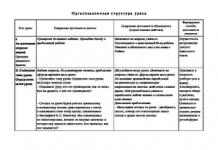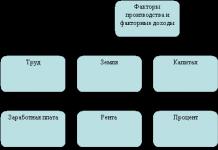“The key to Moscow has been taken!”
After the first unsuccessful attempts to repel Napoleonic troops that invaded Russia on June 12, 1812, Mikhail Kutuzov was immediately talked about as the only person capable of taking the post of commander-in-chief. But Alexander I did not like Kutuzov. Only after the election of the commander as the head of the Moscow and St. Petersburg militias and urgent advice from those close to him to rely on an experienced military leader, Emperor Alexander relented. Meanwhile, French troops were already near Smolensk. Appointed commander-in-chief, on the way to the army Kutuzov repeated: “If only I find Smolensk in our hands, then the enemy will not be in Moscow.” Beyond Torzhok he learned that Smolensk had been surrendered. “The key to Moscow has been taken!”- Kutuzov exclaimed in despair. The abandonment of Moscow by Russian troops was predetermined.
“We will not defeat Napoleon. We will deceive him"
The appointment of Kutuzov to replace the foreigner Barclay de Tolly as commander-in-chief of the retreating Russian army was supposed to cause a patriotic upsurge among the troops and people. But the field marshal himself, having lost the Battle of Austerlitz in 1805, was not in the mood for an open and decisive battle against Napoleon. According to eyewitnesses, he expressed himself this way about the methods he would use against the French: “We will not defeat Napoleon. We will deceive him."
Already on August 17, Kutuzov arrived in the army as commander-in-chief. The troops greeted him with general rejoicing, hoping that the end of military failures had come. Officers and soldiers joked: “Kutuzov came to beat the French!” At the review, in order to raise the spirit of his army, the commander-in-chief exclaimed: “With such good fellows - and retreat?”. But these words were only an expression of Kutuzov’s gratitude for the love of the soldiers. The commander again gave the order to retreat - the great superiority of the French forces forced him to do so. The Russian retreat lasted for more than two months and stopped only at Moscow...
“This day will remain an eternal monument to the courage and excellent bravery of Russian soldiers”
The surrender of Moscow was inevitable, but it seemed politically and morally impossible to surrender the ancient Russian capital without a fight. Kutuzov decides to give a general battle to Napoleon. The first and only thing in this war. The Battle of Borodino on August 26, 1812 became one of the bloodiest in the 19th century. On the Borodino field, 46 thousand Russian soldiers and officers died in one day of battle, the French lost about 50 thousand people. Despite the losses, our troops won a moral victory over the enemy, which turned the tide of the war.
“This day will remain an eternal monument to the courage and excellent bravery of Russian soldiers, where all the infantry, cavalry and artillery fought desperately. Everyone’s desire was to die on the spot and not yield to the enemy. French army did not overcome the fortitude of the Russian soldier, who cheerfully sacrificed his life for his fatherland,” - this is how Mikhail Kutuzov reported to Emperor Alexander I about the Battle of Borodino. For the battle of Borodino on August 30, 1812, Kutuzov was promoted to field marshal general by the Russian emperor.

“To save Russia, we must burn Moscow”
After the Battle of Borodino, the balance of power did not shift in favor of the Russian army. Kutuzov spoke in one of his letters about a difficult choice: “The question has not yet been decided: should we lose the army or lose Moscow?” In Fili, it was decided to surrender the ancient capital to the enemy. And although rumor stubbornly attributes the words: “To save Russia, we must burn Moscow,” Kutuzov, the commander did not give the order to burn the city after the retreat.
However, the fire of Moscow, which began on September 2, 1812, during its occupation by the French, was another blow to the enemy and delayed his advance. Meanwhile, Kutuzov's troops undertook the famous Tarutino maneuver, which cut off Napoleon's road to southern Russia on the eve of the coming winter. Realizing the critical situation, Napoleon sent an adjutant to Kutuzov with a proposal for peace negotiations, but the Russian commander replied that “the war is just beginning...”

“The war ended with the complete extermination of the enemy”
Napoleon had no choice but to begin the withdrawal of troops from Moscow on October 7, which then escalated into a stampede. During the retreat, the French emperor lost his army in Russia - more than 500 thousand people killed, wounded and prisoners, almost all the artillery and cavalry. On December 21, Kutuzov, in an army order, congratulated the Russian troops on expelling the enemy from Russia, proclaiming: “The war ended with the complete extermination of the enemy.”
For his skillful leadership of the army in 1812, Mikhail Kutuzov was awarded the title of Prince of Smolensk. He also received the Order of St. George, 1st degree, as a reward, becoming its first full holder in the history of Russia.
The victorious liberation of Europe from the French was led by Emperor Alexander I, who decided to continue the war with Napoleon outside of Russia. With the arrival of the Tsar to the troops, Kutuzov gradually stepped away from command. On April 5, the field marshal came down with a severe cold in the small Prussian town of Bunzlau; there was no hope for the elderly military leader to recover. The Russian Tsar arrived to say goodbye to his commander. Their dialogue was passed on like a legend. “Forgive me, Mikhail Illarionovich!” said Alexander I to the dying Kutuzov. “I forgive, sir, but Russia will never forgive you”, - answered the field marshal.

There is a legend that the last entry in the geography notebook of a cadet of the Royal Military School of Paris Bonaparte reads: “Small Island of Saint Helena.” Mystical coincidence: on this tiny patch of land there are 122 sq. km - the former ruler of half of Europe spent the last six years of his life. He was allowed to take several associates and servants into exile. In total, 27 people voluntarily followed Napoleon. And the prisoner was guarded by 3 thousand soldiers and an entire squadron of warships.
The British were really afraid of their eminent captive. They knew about his character (in particular, about the “propensity to escape”), and about the presence in France of secret Bonapartist organizations that were hatching plans for the release of the emperor. In this regard, the precautions were extraordinary: numerous sentries, a special system of signal posts on the dominant peaks of the island, and regime restrictions for Napoleon himself, which became especially strict after the arrival of the new governor, Sir Hudson Lowe, on the island.
By the way, Lowe’s superiors characterized their subordinate as a stupid, suspicious and envious person. These qualities were fully manifested in the position of a jailer: Low, who was terrified of failing a task that promised all sorts of rewards, sought to limit as much as possible both the freedom of movement of the prisoner and his circle of contacts. As a result, the Count of Las Cases, the author of the famous book “Thoughts and Maxims of the Prisoner of St. Helena,” and the doctor O’Meara, whom Napoleon truly trusted, were forced to leave the island (the emperor did not have a good relationship with his successor Antomarqui, and his qualifications caused great criticism). By the way, historians, criminologists and doctors still argue about the causes of the emperor’s death. Stomach cancer (the disease from which his father died at one time), liver disease, arsenic poisoning - this is not a complete list of hypotheses and versions.
It was difficult to imagine more ordeal for Napoleon's active nature than actual imprisonment on an island in the ocean. He indulged in memories, started an affair with the wife of the Marquis de Montolon Albina (the consequence of which was the birth of his last child, a girl with speaking name Josephine Napoleone; she lived only one year), became friends with the daughters of a local farmer. But the quiet joys of friendship, leisurely communication, and an affair with the wife of a comrade-in-arms were not for Napoleon Bonaparte. His most beloved woman, Slava, continued to primarily occupy the thoughts and feelings of the emperor in exile, from which he was never destined to return.
“Only I know”
In the last weeks of his life, in those moments when Napoleon’s pain subsided and he was conscious, he was concerned with completely understandable and natural things: conveying greetings and instructions to his son, disposing of his property, rewarding his comrades-in-arms and servants.
And he thought about posthumous fame much earlier. In conversations with Las Cases, the crowned prisoner constantly returned to his assessment of what had been accomplished. The memory of him for future generations worried him, although sometimes he spoke about it almost contemptuously: “Indulging in all kinds of exaggerations, I was praised, like other monarchs, who were given the opportunity to accomplish something extraordinary; but what my true merit is is known only to me.” At the same time, sometimes he assessed himself primarily as an outstanding commander, recalling victories, of which he valued Marengo, Austerlitz and Jena most of all. Sometimes - as a legislator: “My true glory is not that I won forty battles... But what cannot be forgotten, what will live forever, is my Civil Code.” Sometimes - as the organizer of post-war Europe: “In Europe they copy my laws, imitate my institutions, complete my undertakings, follow my policies, and so on, right up to the tone that my court set; Does this mean my reign was not as bad and absurd as they say? And always - as a man who brought greatness to France: “The day will come when history will tell what France was when I ascended the throne, and what it became when I prescribed laws to Europe.”
In many ways he was right. His Civil Code was not only not forgotten, but is also in force to this day (of course, with certain amendments) in France and a number of its former colonies. At one time, he had a decisive influence on the legislation of the German and Italian states, as well as several Latin American countries and the state of Louisiana in the USA. Traces of this influence are still visible today.
Colossal in scope and revolutionary in content, the code finally destroyed the old feudal law and in practice consolidated one of the fundamental slogans of the French Revolution - equality - both in the field of entrepreneurship and in matters of family legal relations, inheritance law and other important areas. It was thanks to this document that residents of France, regardless of social class and the thickness of their wallet, began to feel protected by law. Two thousand two hundred and eighty-two articles, divided into three books, consistently asserted this principle, hitherto unknown to law.
It is interesting that not only the content and legal technique of the code, but also its impeccable style found their fans. For example, Stendhal used to read several pages a day to sharpen his sense of language, and Paul Valéry generally considered it the greatest work of French literature.
Of course, Napoleon was not its only author. Among the associates were brilliant lawyers - for example, Jean Cambacérès, who published drafts of the future document back in 1794, or Jean Portalis, its editor-in-chief. But the main author, who personally dictated the text of hundreds of articles, was still a man whom descendants remember primarily as a commander.
Regarding the greatness of France, its emperor was also not mistaken. Today, the vast majority of French people consider the Napoleonic era to be the period of their homeland's greatest rise. The ring of boulevards in the center of Paris, named after marshals, the Vendôme Column and the tombstone of Bonaparte himself in the Cathedral of the Invalides are a topographic memory of Napoleon.
As for military victories, they are undoubtedly not forgotten either. Few people dare to deny Bonaparte’s military genius (although among them there is, for example, Leo Tolstoy), and the number of special monographs and articles exploring various aspects of his military activity has long exceeded ten thousand. The names of the greatest battles of this era still sound almost sacred to every lover of military history (and there are many of them: there are more than a hundred historical reconstruction clubs in Europe dedicated to this period alone), and the places where some of them took place have been turned into museums (among them are Austerlitz and Jena, Borodino and Waterloo).
At the same time, the posthumous glory of the greatest commander is overshadowed by the reputation of a politician who sought to solve both internal and international problems primarily with the help of guns, and little thought about the price to be paid for these decisions.
When Napoleon cried
The Napoleonic wars were not only colossal bloody battles (about half a million soldiers fought in the three-day battle near Leipzig, and about 60 thousand dead and dying were left on the Borodino battlefield), but also relatively small clashes. The number of military operations in which both sides lost at least 2 thousand people in fifteen years from Marengo to Waterloo is no less than 230. In addition, during the same period, seven major naval battles and 91 sieges took place.
Napoleon repeatedly emphasized that he did not want to shed blood. For example, at St. Helena, he spoke about the circumstances of his first (1814) abdication: “Instead of abdicating at Fontainebleau, I could fight: the army remained faithful to me, but I did not want to shed the blood of the French for my own personal interests.” Here, to put it mildly, he was being disingenuous. For his attitude towards the lives of his own soldiers and officers is rather akin to the attitude of a chess player towards the pieces on the board - they must be protected to achieve victory, but the defeat of the enemy justifies any sacrifice. So, in 1805, he told the Austrian diplomat Metternich that “he could afford to spend 30 thousand people a month.” Even during the period of his triumphal march across Europe, Napoleon's victories were very often achieved at the cost of enormous sacrifices.
An accurate calculation of losses during the era of the Napoleonic wars is hardly possible. In the period 1800-1815, France alone, according to the most minimal estimates, lost at least 370 thousand people killed and died from wounds. And the total irretrievable losses of participants in European wars of this period amount to at least a million people. Of course, the wars of the twentieth century changed the threshold of sensitivity, but throughout the previous century these figures shocked the imagination of contemporaries and descendants.
It is unlikely that Napoleon can be considered completely heartless, and his tears over the bodies of General Dese at Marengo and Marshal Lannes at Essling were sincere. However, historian Evgeniy Tarle claims that after the death of Lannes, Napoleon cried “for the second and last time in his life.” And there is hardly any doubt that, if he happened to repeat these two battles, he would once again, without hesitation, pay for the victories with the lives of his closest associates.
Paradoxes of memory
But the halo of Napoleon's glory almost always overshadowed the bloody statistics of his deeds. It is no coincidence that he was sung by the greatest poets of both his era (Pushkin and Lermontov, Byron and Heine) and those who followed (Bryusov, Mayakovsky and Tsvetaeva). To this day, a person who has ambitious plans is compared first of all to him. Ermolov and Pestel, Tukhachevsky (“red Bonaparte”) and Zhukov (officially accused of “Bonapartism”), the French Marshal Petain, Hitler’s General Rommel and the American General Patton were likened to Napoleon.
Sometimes it sounded like flattery, more often - like an accusation of an intention to seize power through a military coup. The example of the young artillery captain, who took the impregnable Toulon by storm in 1794, rose to the rank of victorious army commander in four years, and two years later became the ruler of France, carving out the map of the world at his own discretion, creating and overthrowing kings with a wave of his hand, commanding the lives of millions - cannot do not disturb the minds of those who crave fame.
And not only them. Those who dream of a “strong hand” and a “power that everyone fears” are also fans of the late emperor, although not always consciously. Such are the paradoxes of the memory of this man. Which is understandable, because he himself valued laws - and placed himself above them, freed entire peoples - and immediately enslaved them. “The heir and murderer of rebellious liberty” - hardly anyone defined his historical role more precisely than Pushkin.
However, we owe Napoleon quite harmless and even useful things. For example, it was he who introduced right-hand traffic in continental Europe (for reasons of convenience in transporting troops). By his order, the first industrial batch of dark glasses (for the Egyptian campaign) and the first wristwatch were made. And it was he who introduced canned food into everyday life, awarding their inventor the high title of “benefactor of humanity.”
One of the most important events in the history of world law was the adoption
Napoleonic Code. A special commission of four leading lawyers under
Napoleon's leadership in a short time improved and
brought into compliance with all applicable laws, regulations and local
customs of France. In 1804, this grandiose set of laws, consisting of 2281
article, was approved under the name of the Civil Code. The main thing in this
code is that he affirmed the equality of all before the law, freedom of conscience, non-
privacy of person and property.
Napoleon himself understood well historical significance his
legislative activity. “My true glory,” he said, “is not
that I won forty battles. But what cannot be forgotten is what will live
forever - this is my Civil Code."
Added 1 year ago
The Napoleonic Code has outlived its creator. The Empire fell apart, but France,
and after it, many other states of Europe and America continue
be guided by the legal principles set out in the Napoleonic Code
One of the most important events in the history of world law was the adoption of the Napoleonic Code. A special commission of four major jurists under the leadership of Napoleon in a short time improved and brought into conformity all the existing laws, regulations and local customs of France. In 1804, this grandiose set of laws, consisting of 2281 articles, was approved under the name of the Civil Code. The main thing in this code is that it affirmed the equality of all before the law, freedom of conscience, inviolability of personality and property. Napoleon himself well understood the historical significance of his legislative activities. “My true glory,” he said, “is not that I won forty battles. But what cannot be forgotten, what will live forever is my Civil Code.” Updated 1 year ago The Napoleonic Code has outlived its creator. The empire collapsed, but France, and after it many other states of Europe and America, continue to be guided by the legal principles set out in the Napoleonic Code
0 /5000
Define language Klingon (pIqaD) Azerbaijani Albanian English Arabic Armenian Afrikaans Basque Belarusian Bengali Bulgarian Bosnian Welsh Hungarian Vietnamese Galician Greek Georgian Gujarati Danish Zulu Hebrew Igbo Yiddish Indonesian Irish Icelandic Spanish Italian Yoruba Kazakh Annada Catalan Chinese Chinese Traditional Korean Creole (Haiti) Khmer Laotian Latin Latvian Lithuanian Macedonian Malagasy Malay Malayalam Maltese Maori Marathi Mongolian German Nepali Dutch Norwegian Punjabi Persian Polish Portuguese Romanian Russian Cebuano Serbian Sesotho Slovak Slovenian Swahili Sudanese Tagalog Thai Tamil Telugu Turkish Uzbek Ukrainian Urdu Finnish French house a Hindi Hmong Croatian Chewa Czech Swedish Esperanto Estonian Javanese Japanese Klingon (pIqaD ) Azerbaijani Albanian English Arabic Armenian Afrikaans Basque Belarusian Bengali Bulgarian Bosnian Welsh Hungarian Vietnamese Galician Greek Georgian Gujarati Danish Zulu Hebrew Igbo Yiddish Indonesian Irish Icelandic Spanish Italian Yoruba Kazakh Kannada Catalan Chinese Chinese Traditional Korean Creole Chinese (Haiti) Khmer Lao Latin Latvian Lithuanian Macedonian Malagasy Malay Malayalam Maltese Maori Marathi Mongolian German Nepali Dutch Norwegian Punjabi Persian Polish Portuguese Romanian Russian Cebuano Serbian Sesotho Slovak Slovenian Swahili Sudanese Tagalog Thai Tamil Telugu Turkish Uzbek Ukrainian Urdu Finnish French Hausa Hindi Hmong Croatian Chewa Czech Swedish Peranto Estonian Javanese Japanese Source: Target:
One of the most important events in the history of world law was the adoption of Code Napoleon. The Special Commission of the four largest lawyers under the leadership of Napoleon for a short time and improved in compliance with all applicable laws, regulations and local Customs of France. In 1804, this grandiose laws, consisting of 2281 the article was approved under the name of the civil code. The main thing in this code that he asserted the equality of all before the law, freedom of conscience, the non- the implication of persons and property. Napoleon himself was well aware of the historical significance of his legislative activity. "My true glory, he said, is not whether I won forty battles. But what cannot be forgotten, what will live forever is my civil code." Supplemented with 1 year ago Code Napoleon survived its creator. Empire collapsed, but France, followed by many other countries in Europe and America continue to guided by the legal principles set out in the Code Napoleon
One of the most important events in the history of the right to the adoption
Code Napoleon. A special commission of the four largest lawyers under the
leadership of Napoleon for a short time has improved and
brought into compliance with all applicable laws, regulations and local
customs in France. In 1804, this grand set of laws, which consists of 2281
articles, was approved under the name of the Civil Code. The main thing in this
code that he claimed the equality of all before the law, freedom of conscience,
non-implication of person and property.
Napoleon himself was well aware of the historic significance of their
legislative activities. "My true glory, - he said - not that
I won forty battles. But what can not be forgotten, that will live
forever - this is my Civil Code."
Added 1 year ago
Code Napoleon survived his creator. Empire disintegrated, but France,
followed by the many other countries of Europe and America continue to
be guided by legal principles laid down in the Code Napoleon
is being translated, please wait..
Lord one of the most important events in the history of the world was the adoption
code Napoleon. The Special Commission of the largest four jurists under
The Napoleon in a short period of time has improved and
has led in line all the laws, regulations and local
customs France. In 1804, this ambitious set of laws, consisting of 2281
Article, was approved by the Civil Code. The main in this
code that he claimed equality of all before the law, freedom of conscience, not-
labors person and property.
Napoleon himself is well understood the historical importance of its
legislative activity. "My true glory," he said, "not the
that I have won forty-battles. But then, that may not be forgotten, however, that it would be to live
Forever - this is my civil code" .
added by 1 year ago
Code Napoleon had survived its creator. Empire disintegrated, but France,
and followed by many other states of Europe and America continue to
Guided by the principles set forth in the code Napoleon
is being translated, please wait..
“My true glory,” said Napoleon on the island of St. Helena, “is not that I won forty battles. Waterloo will erase the memory of these victories. But what cannot be forgotten, what will live forever, is mine Civil code". He turned 200 years old. Napoleon was right: his code lives and operates, and not only in France.
The Napoleonic Code, which came into force in 1804, is adopted as the basis for the codes of civil laws in more than 70 countries of the world, in some places and in full. Even in the ocean of Anglo-Saxon law there are two islands of Napoleonic legislation - the state of Louisiana in the USA and the province of Quebec in Canada. The Code guaranteed civil liberties, including freedom of religion, and ensured the equality of all before the law.
It was adopted in an era when the country was emerging from the “revolutionary turmoil” with great difficulty, and Bonaparte was faced with the most difficult task of stabilizing the state and giving a solid legal basis to the new order. By the beginning of the Great French Revolution of 1789-94. The north of the country mainly lived according to German customary law (from the word “custom”), the south - according to Roman law. Laws varied from province to province and even from city to city: there were 366 (!) local codes in force in the country. At the same time, the supreme law was the will of the king. Louis XIV once said: “It is legal because I want it so.”
Napoleon believed that the revolution occurred not because France longed for freedom as such, but because it wanted equality. By this he understood the equality of citizens before the law, and not their living conditions. “Freedom was only a pretext,” Bonaparte said about the revolution.
And this revolution, recalls the French legal historian, former Minister of Justice and Chairman of the Constitutional Council Robert Badinter, became the largest redistribution of property in the history of France. She not only abolished feudal orders and privileges, but also transferred to the “rising classes” the right to own gigantic wealth that had previously belonged to the possessions of the crown, the church and the fleeing nobility. Napoleon needed to ensure the indestructibility of the position of private property, making it invulnerable from any threat - from feudal lords who did not want to go to their graves, or from proletarians who wanted to break their chains.
Historical paradox: it was not revolutionaries, but conservatives who took part in the development of one of the most progressive legal documents of the 19th century, notes our Paris correspondent Mikhail Timofeev. But, of course, these were the best French lawyers of that time. They formed the codification commission of the Council of State - François Tronchet, Félix Bigot de Preamenu, Jean Portalis and Jacques Maval. Yes, only four people: Napoleon hated large commissions, long speeches and endless meetings.
These experienced practitioners and strong theorists created a creative compilation of Roman law, the legal customs of the population, royal ordinances, revolutionary laws and the jurisprudence of old parliaments. The philosophical works of Rousseau and other enlighteners were also useful. The theoretical calculations of lawyers from countries that belonged to the European “enlightened monarchies” were carefully analyzed. All this became the key to such a long existence of the code. A fact worthy of mention is that of the 2281 articles of the Napoleon Code, 1200 have not yet been subject to any changes!
And one more remarkable fact: in those years, the commission had the opportunity to hold a “professional referendum” throughout the country - the draft code was sent to all courts, and its drafters received many hundreds of detailed and valuable responses from legal practitioners.
The scale of Napoleon’s own participation in the development of the code is evidenced by the fact that in the three-year period from 1801 he chaired 36 of the 84 meetings of the State Council dedicated to the discussion of the new code of laws. Adopted with a far-reaching social and political focus, the code radically changed the “legal landscape” of the country - with its publication, all previous civil legislation was abolished.
After Waterloo, Napoleon went to St. Helena, but his brainchild was not sent into exile, continuing to live and thrive in France and other European countries and spreading throughout the world. By the way, in Louisiana, the Napoleonic Code began to apply not when it was a French colony, but from 1807, four years after it was purchased by the United States. And with changes, but it still works. Remember Tennessee Williams in A Streetcar Named Desire? main character says to his wife: “We, in Louisiana, have the Napoleonic Code in force, according to which all the wife’s property belongs to the husband and vice versa.”
Modern experts call the Napoleonic Code "a legal monument to a subtle understanding of the legal structure of the state." He - and this also became the key to his “survivability” - practically passes over labor relations in silence, regulating primarily property relations. As one lawyer aptly noted, “The Napoleonic Code is the code of the haves.” Therefore, in the future, he easily adapted to the primary era of capitalism - and then, of course, not without changes, he was able to successfully function in a “post-industrial” society.
Especially great value The code normalized inheritance rights - for the first time in France, the right of sons to equal shares of the inheritance was introduced. At the same time, the new code abolished the humane laws of the revolution, which equalized the rights of so-called “illegitimate” children with “legitimate” ones.
Of course, in Europe over 200 years there have been gigantic changes in the economic, legal, and social spheres. Four hundred laws were passed in France to adapt the code to changing society - but the number of articles in it remained almost unchanged, increasing from the original 2281 by only two - to 2283.
The greatest changes have occurred in those related to the status and rights of women. Although, it is worth recognizing that no one spoke about these rights in the Napoleonic era - a woman was officially recognized by the articles of the code as “incompetent” (or, if closer to the French term, “defective creature”). The woman had no opportunity to go to court, sign business papers, or dispose of household property. In this regard, by the way, the code reflected the views of Bonaparte himself, who believed that “a wife is the property of her husband, just as fruit tree- the property of the gardener."
True, the code gave women the right to divorce. And this was such a big step forward that the next regime abolished it in 1816, and seriously and for a long time - this right was restored only in 1884. However, even under Napoleon, divorce was much more difficult for a wife than for a husband. The husband could immediately divorce if his wife was unfaithful; she could divorce only after the husband had been in a relationship with his mistress for two years. Napoleon himself divorced Josephine in 1809 for a completely different reason - she could not bear him an heir, although she gave birth to two children in her first marriage. The divorce was “by common consent,” which the code prudently allowed without giving any reasons. And one more thing - the code gave the husband the right to kill his unfaithful wife with impunity if he caught her with someone else, and in such a case she would face trial for murder.
French women received the right to own their own salaries only in 1907. The right to put your signature on contracts - in 1938. Only in 1944 did they receive the right to vote, and only in 1972 were their rights equalized with their husbands regarding children. The Napoleonic Code held France tightly in its “legal claws”!
As French leaders celebrate the 200th anniversary of the civil code, they say a major overhaul of this unique set of laws is in the offing. It is no coincidence that at the colloquium that opened the anniversary celebrations in the ancient building of the Sorbonne, French President Jacques Chirac spoke not so much about the significance of the Napoleonic legacy as about the urgent need to simplify and re-codify French law. “Codification,” noted the French President, “is an important counterbalance to the process of “inflation” of old laws.”
N 18-19 (837-838) o April 30 - May 13, 2004
Napoleon was well aware of his exclusivity, his special existence in this world. While still an unknown artillery lieutenant, he experienced this revelation about himself: “I am always alone among people... People are so different from me than moonlight to sunny."
But he finally confirmed this opinion on May 10, 1796. On that day, General Bonaparte attacked Austrian positions near the town of Lodi on the banks of the Adda River. The only bridge across the river was covered by a 10,000-strong detachment of General Sebotendorf with 20 guns. The enemy's defense seemed invulnerable: Austrian artillery threatened to sweep away anyone who dared to approach the bridge.
This problem was solved by Bonaparte with lightning speed, like a two-move chess move.
Bonaparte ordered General Beaumont with a detachment of cavalry to cross the river upstream; at the same time, the French artillery was ordered to concentrate all fire on the Austrian positions at Lodi. Behind the city ramparts that bordered the river, Augereau's grenadiers were formed into an attacking column.
The Austrian infantry, forced to take cover from artillery fire, retreated a considerable distance from the bridge. Having waited until Beaumont distracted Sebotendorff's attention with an attack from the right, Bonaparte led his soldiers in a bayonet attack. The grenadier column rushed across the bridge like a whirlwind, captured the cannons, then fell on the enemy infantry and put them to flight. The Austrians lost about two thousand people killed and wounded and almost all their artillery. French losses were ten times less.
In the French camp, everyone praised the twenty-seven-year-old commander to the skies for the ingenious simplicity of the crushing blow. And Napoleon himself, who by that time had only 13 Vendémières under his belt (October 5, 1795, when he suppressed the armed uprising of royalists in Paris with the help of artillery) and the battle of Montenotte (a place in Piedmont where Bonaparte won his first decisive victory over united Austro-Sardinian army of Beaulieu), took the incident most seriously: “Only on the evening of the battle of Lodi did I begin to consider myself a man of the highest order, and an ambitious thought burned within me - to accomplish things that until then I had thought about only in minutes fantastic dreams."
He was lucky: the flowering of his genius came at a time when it seemed that impossible possibilities no longer existed. The revolution cleared all barriers to the heights of careers for a wide variety of talents. But the fastest way to the top was provided by the army, which was the soul and vital nerve of the republic. At the end of the 1790s, it was clear to everyone that the revolution would end in a military dictatorship. There was only one thing left to do: a person had to appear who would believe in himself and his strengths enough to turn war, republic and revolution into simple means for achieving personal success.
And such a man was born at the Battle of Lodi.
Later, an eloquent confession came from Napoleon’s lips: “What gave birth to the revolution? - Ambition. What brought it to an end? - Also ambition. And what a wonderful excuse freedom was for all of us to fool the crowd!”
Several years passed, and on the day Napoleon was proclaimed First Consul, Abbe Sieyès addressed the other two heads of the Consulate: “Congratulations, we now have a master. This man knows everything, wants everything and can do everything.”
Indeed, since the time of Caesar, nature has not created a more perfect organism, adapted to rule the world. It seemed that physical and mental overload did not exist for Napoleon. After spending half a day on his feet, he could jump into the saddle and ride several dozen miles “for relaxation.” Those around him had no reason to question his words when he proudly said that he did not know the limits of his ability to work: “I always work: at lunch, in the theater; I wake up at night to work. Work is my element, I was born and created to work.” Placed in exceptional circumstances, Napoleon could stay awake for several nights in a row, maintaining physical vigor and clarity of thought.
He demanded the same grueling pace of work from his employees. Therefore, he was not joking at all when he said that his minister should begin to suffer from urinary retention no later than six months after taking office, otherwise he risked establishing himself as a slacker. Once, during the consulate, one state meeting lasted long after midnight. The Minister of War fell asleep, the others were nodding off, barely able to stay in their chairs. “Come on, wake up, wake up, citizens! - Bonaparte exclaimed. — It’s only two o’clock in the morning. We need to earn the salary that the French people pay us.”
It was not for nothing that one of his contemporaries said that in three years of consulate he ruled France more than kings in a hundred years.
The non-stop work of Napoleon's mind was based on an amazing memory. By his own admission, in his youth he knew by heart the logarithms of thirty to forty numbers, as well as “not only the names of all the officers in all the regiments of France, but also the places where these units were recruited, and where each of them distinguished itself, and even the political spirit of each of them."
Subsequently, managing multimillion-dollar budgets and huge armies scattered from the Niemen to Gibraltar, he immediately found the smallest errors in financial and military documents dotted with columns of figures, whether the matter concerned a few overspent centimes, two four-inch guns forgotten in Ostend, or two squadrons of 20- th horse-jaeger regiment, sent three years ago to Spain and unaccounted for in the regimental register. Reading well-written military reports gave him a peculiar pleasure. “Your reports on the states read like a beautiful poem,” he once wrote to General Lacue.
What is striking about Napoleon’s activities is the combination of painstaking menial work with creative power, extraordinary imagination with cold calculation. “I love power, like an artist, like a violinist loves a violin,” he said. “I love power, to extract sounds, consonances, and harmonies from it.” The royalist Chateaubriand had no doubt: “He, of course, would not have done what he did if the Muse had not been with him.”
However, all this is not enough. Napoleon knew: “The most desirable thing, what immediately puts a person in first place, is the balance of intelligence or talent with character or courage.” Only it gives a person reliable integrity, makes him unshakable, like a rock. In other words, one must “be as square in height as in the base,” where the height is the mind and the base is the will.
It was this “squareness of genius” - an indestructible will guided by an all-encompassing mind - that conquered people in Napoleon. He could say with satisfaction: “No matter how great my material power was, my spiritual power was even greater: it reached the point of magic.” There is not the slightest exaggeration in these words: the effect of his spell was indeed irresistible. Even timid people, such as General Vandam, admitted: “This devilish man has such power over me that I myself do not understand it. I’m not afraid of God or the devil, and when I approach him, I’m ready to tremble like a child: he could make me go through the eye of a needle and throw myself into the fire!” Thousands of people saw bliss in dying before Napoleon's eyes - and he had the happiness of being surrounded by friends, many of whom shielded him with their chests from bullets or died on the battlefield, carrying out his orders.
The influence of Napoleon’s personality chilled people “to the liver”; it affected the deepest recesses of the soul, which a person opens only to meet the most intimate. Among the Poles, Napoleon was revered as a messiah sent by Providence to Poland to restore an independent Polish state (later these sentiments would take shape in the mystical teachings of Andrzej Towianski, where Napoleon would appear as a messenger of God like Christ). These feelings were also familiar to the French. “In my childhood I knew old invalids who could not distinguish him (Napoleon) from the Son of God,” recalled the Catholic writer and mystic Leon Bloy. At other moments, the appearance of Napoleon aroused religious delight in the crowd in the full sense of the word. This is how an eyewitness, General Thiebault, describes the apotheosis of his “Hundred Days” - the triumphal entry into Paris in 1815: “Those who carried him were like crazy, and thousands of others were happy when they managed to kiss his clothes or just touch his her... It seemed to me that I was present at the resurrection of Christ.”
Napoleon’s personal “magic” would not have been so effective if he had not achieved truly great achievements. You need to know what France was like before the 18th Brumaire and after it in order to understand what devastation the revolution caused in it, and, therefore, what Bonaparte did for the country. Contemporaries paint a picture of complete desolation: the treasury is empty, soldiers are not paid, all roads are broken, bridges are in danger of collapse, rivers and canals are no longer navigable, public buildings and monuments are dilapidated, churches are locked, the bells are silent, fields are desolate, robbery, poverty and hunger are everywhere. .
Napoleon's first concern as first consul was to return to France its Christian soul, which had been desecrated by the revolution. He unmistakably determined what poison the air was saturated with: “The most terrible enemy now is atheism, not fanaticism.”
On July 15, 1801, the Concordat, an agreement with the Holy See, was signed: the Catholic religion was declared “the religion of the overwhelming majority of the French people,” public worship was guaranteed, the Gallican Church was restored in all its rights, and the Pope was again recognized as its head.
With this act, Napoleon immediately refuted all the revolutionary atheism of the 18th century. “This is the most brilliant victory over the spirit of the Revolution, and all that follows is only a consequence of this main one,” Baron Pasquier (French politician (1767-1862), author of the memoir “History of My Time” (“Histoire de mon Temps”) perspicaciously noted. , published in Paris in 1893-1895).
On April 18, 1802, a solemn Easter service was held at Notre Dame Cathedral in Paris - the first after a nine-year break. The friends of the first consul and the entire army were amazed. The atheist Jacobin generals were especially loudly indignant. “A magnificent ceremony, it’s only a pity that a hundred thousand people were killed so that such ceremonies would not take place,” General Pierre Augereau muttered through clenched teeth at the end of the liturgy.
“It was more difficult for me to restore religion than to win a battle,” Napoleon recalled. And yet, “the success of the Concordat showed that Bonaparte, better than anyone around him, guessed what was in the depths of their hearts” (Baron Pasquier).
The Catholic Church blessed Napoleon with its lips holy father, Pius VII: “We must remember that after God, it is to him, Napoleon, that religion primarily owes its restoration... The Concordat is a Christian and heroic work of salvation.”
To complete the picture, it should be remembered that this Christian work was accomplished by a man who said: “I have come to the conviction that Jesus never existed.” He understood immortality in the ancient sense: “For me, immortality is a trace left in the memory of humanity. It is this idea that encourages great achievements. It’s better not to live at all than to leave no trace of your presence on earth.” This does not mean, however, that Napoleon was an atheist. True, he did not believe in the existence of any divine principle, but he never denied it - he simply believed that religion had no meaning outside of politics. Napoleon understood the importance of the Church, especially the Roman Church, with its enormous political authority, incomparably better: “Can it be public order without religion? Society cannot exist without wealth inequality, and inequality cannot exist without religion. When one person is dying of hunger next to another who is fed up, it is impossible for him to agree to it unless there is an authority that tells him: “This is what God wants; it is necessary that here on earth there should be poor and rich, but there, in eternity, it will be different.”
Napoleon did not fight Christianity and did not accept it. Politically, he used his sacred organization - the Church, and in a spiritual sense, he simply passed by. In the depths of his soul, he believed that it was more useful to teach a person geometry than the Law of God. However, the lack of personal faith did not force him to encroach on the faith of others.
Following the adoption of the Concordat, he forced England to sign the Peace of Amiens (March 25, 1802), which ended many years of war in Europe. By that time, Napoleon's campaigns had already evoked among contemporaries memories of the deeds of the greatest heroes of antiquity - Alexander the Great and Julius Caesar. But Napoleon himself, in his declining years, considered his best monument not to be military victories: “My true glory is not that I won 40 battles: Waterloo alone crossed them all out. What will live forever is my civil code”; “my Code is the anchor of salvation for France; for him my posterity will bless me.”
At that time, complete chaos reigned in French legislation. “Before my Civil Code appeared,” Napoleon recalled, “there were no real laws in France at all, but there were from five to six thousand volumes of various regulations, which led to the fact that judges could hardly, in conscience, examine cases and pass sentences " And so, instead of this legal jumble, the French received a harmonious, unified set of laws - the fruit of three years of work by the first consul and the best lawyers in France.
The Napoleonic Code was based on the principles of natural justice and reason, guaranteeing the equality of all French people before the law, civil freedom, the sacred nature of the family, and the impartiality of the court. Therefore it had a worldwide influence, just like the revolution. Gradually, all European countries, as well as many peoples of the world, accepted it. The provisions of the Code on private property rights, damages, and contract law are so fundamental that many of these articles have never been amended over the next 200 years.
The impression made by the Napoleonic Code on his contemporaries was enormous. Friends and enemies of the first consul agreed that this was “one of the most beautiful creations of human genius,” in the words of General Marmont. “Bonaparte’s victories instilled in me more fear than respect,” admitted one old minister of Louis XVI. - But when I looked into the Code, I felt awe... And where did he get all this from?.. Oh, what kind of person you had in him! Truly it was a miracle."
And then, for ten years in a row, Napoleon performed miracles for which descendants are unlikely to ever find a reasonable explanation. He brought France out of revolutionary chaos and returned it to order. He created a harmonious state, judicial chambers, schools, a powerful, effective and smart system management. He was able, by the exclusive power of his genius, to compel the obedience of thirty-six million subjects in an era when the reverence that had once surrounded the throne had dissipated. He forced outstanding people and ordinary people, republicans and monarchists, rich and poor, winners and losers to think and talk about themselves, connecting his name with the name of Fate. But most of all, he was great in that he created himself, and together with himself he created millions of other people who from now on rushed after him beyond the limits of human capabilities. That is why Napoleon, already during his lifetime, gained the immortality of legend, poetic fiction, soldier's legends and folk tales.
But this temptation of immensity also concealed the guarantee of his death.
The misfortune of Napoleon - and the whole world - was that the creative power of his genius and strength of character were not supported by his moral greatness. “He was as great as can be without virtue,” said Tocqueville. And according to Chateaubriand’s observation, his character was spoiled by monstrous pride and incessant affectation.
Accustomed to standing apart from the crowd, to feeling like a happy exception from the common lot of mankind, Napoleon early became accustomed to seeing people as simple instruments of his will. He was probably sincere when he said that he did not wish them harm, but this did not stop him from publicly declaring his contempt for the lives of millions of people and calmly sacrificing them for the sake of his interests, military and political benefits. His throne is erected on the bones of at least three million people who died in his wars, almost half of them French. In his justification, we can only say that the collision of two Europes - monarchical and revolutionary - was inevitable, and it is unlikely that even a person like him would have been able to prevent it. In any case, the French were grateful to him for putting an end to civil war, which took no less lives to the grave.
From the outside it might seem that Napoleon crossed the line between good and evil. This is how Madame de Staël saw him: “He was neither kind nor evil, neither merciful nor cruel, in the sense that other people are. Such a creature, having no similarity, could, in fact, neither inspire nor experience sympathy; he was more or less than a man: his appearance, mind, speech - everything bore the stamp of some alien nature.”
In some ways, however, Madame de Staël was mistaken: it cannot be said that this supermundane being was not familiar with ordinary human compassion. “Napoleon not only was not angry, but was naturally kind,” testifies a person who had the opportunity to observe him day after day, Napoleon’s last secretary, Baron Fein. “His first order of business after every battle was to take care of the wounded. He himself went around the field, ordered to pick up his own and strangers equally; I myself observed that dressings were done to those who had not yet received them, and that every last one was transferred to outpatient centers or to the nearest hospitals. He entrusted some of them specifically to his life surgeon... and then carefully asked him about the slightest details during the treatment, about the properties of the wound, about the hope of recovery and about the danger - he wanted to know about everything.”
Segur recalls how, after the Battle of Borodino, Napoleon’s horse, riding around a field littered with dead bodies, touched a wounded man with its hoof, and he groaned. The emperor began to abuse the staff for not taking care of the wounded. “Someone, to calm him down, noticed that he was a Russian soldier. But the emperor quickly objected that after victory there are no enemies, but only people!”
In the end, this character trait of Napoleon would be confirmed by Alexander I: “He is not known and is judged too harshly, perhaps even unfairly... When I got to know him better, I realized that he is a kind man.”
But his natural kindness and compassion did not develop into love for people. The demonic nature of his genius took precedence over the inclinations of mercy. Moreover, the colossal figure of Napoleon is set off by the personality of his main opponent - Emperor Alexander I, the last politician to whom history provided the opportunity to build the European world on the principles of Christian love.


























